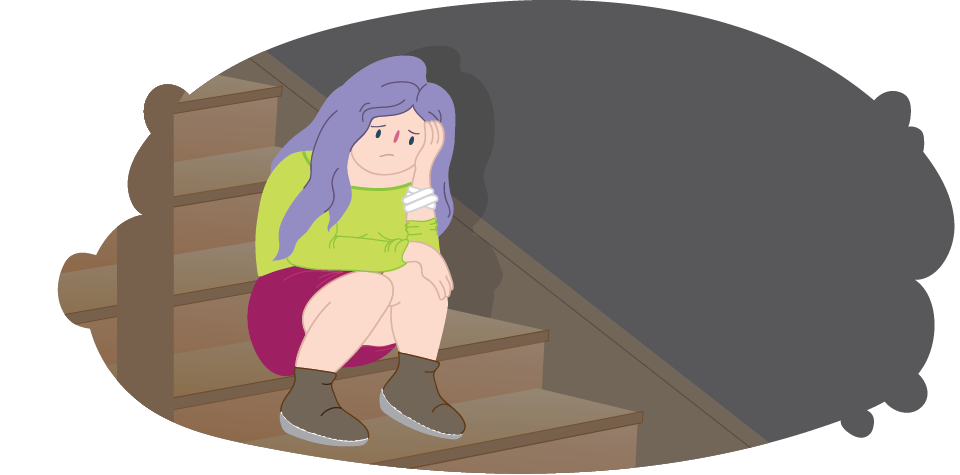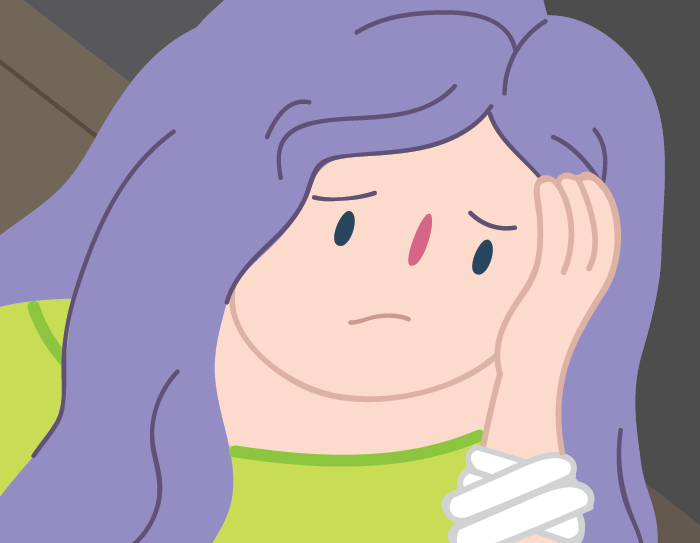Physical violence and abuse
Violence is never okay. If you or someone you know is experiencing physical abuse it is OK to ask for help.
Content Warning: this article contains violence and trauma related content that may be triggering or distressing.

What is physical abuse?
Physical abuse happens when someone deliberately hurts another person’s body
- It can also be known as physical violence
- Physical abuse or violence is illegal
- You don’t have to have bruises or marks for it to be physical abuse
- Physical abuse can start slowly with a threat or push and get worse over time
- Nothing you say or do makes it okay for someone to hurt you
If you ever feel unsafe at home, talk to a trusted adult or Kids Helpline. If anyone is in danger, call 000 and ask for the Police.
Types of physical abuse
Physical abuse can include:
Hitting, punching or slapping
Choking or suffocating
Kicking, pushing or pulling
Biting, spitting or shaking
Pinching, scratching or burning
Destroying your property
Threatening to hurt you
Restraining or locking you up
Stopping you from taking your medication
Force feeding or denying you food or sleep
Poisoning or making you feel unwell with drugs or medicine
Throwing items at you or using items to hurt you
Physical abuse can hurt you emotionally too
It can have a big impact on the way you feel and act.
It may make you feel:
- Sick, hurt, angry or betrayed
- Scared, worried or sad
- Lonely, isolated or trapped
- Guilty, responsible or confused
- Like hurting yourself
- Suicidal, hopeless or helpless
- Rejected, worthless or ashamed
- Unable to concentrate, eat or sleep
- Like running away or lashing out
If physical abuse or violence is happening to you…
It’s important to remember:
Keeping yourself safe
There are things you can do and services you can talk to who can help keep you safe.
If you’re in immediate danger – Call 000 and ask for Police
Find services – That can help with legal or financial support
Take care of yourself – Seek medical support if needed
Find somewhere safe – During a fight move to a safe space
Remove yourself – Stay with family, friends or seek support from a refuge
Make a safety plan – Have an escape plan ready if you need to leave quickly
Seek specialised support – From services like 1800 RESPECT
Know your rights – Check out the Lawstuff website
Keep a record – Of any incidents including dates and photos of injuries
Talk to someone – Call Kids Helpline or talk to someone you trust
You don’t have to go through this alone
Talking to someone about abuse can be hard - but your safety is important
Check these out too:
Domestic violence at home
Violence or abuse at home isn’t ok. Everybody deserves to feel ...
READ MEAbuse in adult relationships
Learn about the different forms of abuse in relationships and where to ...
READ MEHow to ask for help
Sometimes we need help but we're not able to ask for it. ...
READ METalking helps! We’re here for you.
No problem is too big or too small.
We're here 24 hours a day, 7 days a week






